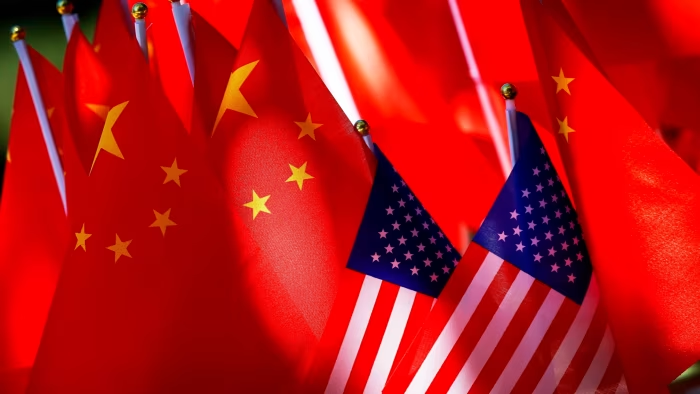China-US economic tensions rise as nations face a crossroads amid escalating trade disputes between the United States and China. As trade disputes and tariffs intensify, nations must decide which side to support under pressure from two of the world’s largest economies.
Implications of Rising Tariffs Worldwide
China-US economic tensions rise as the trade war between the United States and China generates a worldwide conflict, fueled primarily by U.S. tariffs. President Trump. Beijing has reacted sharply to the United States’ 145% levy on Chinese exports. Tariffs on imports from China have increased dramatically. China’s strategic actions in the world economy are forcing countries to consider the advantages of backing Washington or Beijing.
Countries from Switzerland to Southeast Asia are suffering as a result of the trade war’s disruption of global markets.
Some are looking to China for better commercial relations, while others are hesitant to disturb the balance with the United States, whose market is still a vital export destination.
China’s International Strategy: Diplomacy and Outreach
China has actively sought to appeal to countries impacted by U.S.tariffs by presenting itself as a force that stabilizes global commerce. By negotiating trade agreements that go over US economic restrictions, Beijing has profited from Xi Jinping’s diplomatic trips to countries like Vietnam, Malaysia, and Cambodia.
Despite Washington’s harsh stance, China is leveraging its status as the world’s top exporter to expand its influence. By strengthening its relations with developing countries from Africa to Europe, China is emerging as a reliable corporate partner for those engaged in the U.S.-China conflict.
The Difficulty for Smaller Nations
For countries with significant business relations to both China and the US, the issue is clear. It is impossible to take sides. These nations, which contain significant players in both Europe and Asia, must maintain tight economic ties with both giants in order to ensure their own economic stability. Experts stress the delicate balancing act that many nations must perform to avoid severe repercussions from either side.
Matthew Goodman of the Council on Foreign Relations points out that countries need both markets. As countries rely on China for raw materials and imports, they also depend on the U.S. for technology and high-end consumer goods.
China’s Preparedness for Economic Decoupling
China’s leadership has demonstrated resilience in the face of the trade war. Officials have hinted that they may be ready to separate their economy from the US. Despite the massive costs, China remains committed to its long-term strategy of achieving global supremacy. This goal continues even at the expense of immediate economic growth.
Victor Gao, vice president of the Center for China and Globalization, states that China is prepared to weather the storm of decoupling. He notes that China’s historical resilience and adaptability are key to overcoming any challenges posed by the current economic conflict.
Source: AP News





